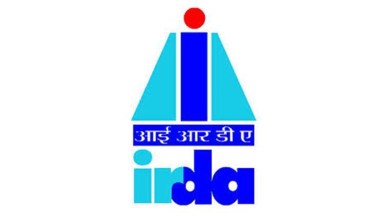In booster shot to infra projects, Irdai paves way for surety bonds
The Insurance Regulatory and Development Authority of India (Irdai) has unveiled the final guidelines, facilitating the launch of various types of surety bonds in the country.

Insurance companies can launch the much-anticipated surety bonds now, assuring payments in the event of default, giving a big push to infrastructure projects in the country.
A surety bond is provided by the insurance company on behalf of the contractor to the entity, which is awarding the project. When a principal breaks a bond’s terms, the harmed party can make a claim on the bond to recover losses. It can effectively replace the system of bank guarantee, issued by banks for projects, and help reduce risks due to cost overrun, project delays and poor contract performance, experts said.
The regulator has said the premium charged for all surety insurance policies underwritten in a financial year, including all instalments due in subsequent years for those policies, should not exceed 10 per cent of the total gross written premium of that year, subject to a maximum of Rs 500 crore. As per Irdai, insurers can issue contract bonds, which provide assurance to the public entity, developers, subcontractors and suppliers that the contractor will fulfil its contractual obligation when undertaking the project. Contract bonds may include: Bid Bonds, Performance Bonds, Advance Payment Bonds and Retention Money. Bid Bonds provide financial protection to an obligee if a bidder is awarded a contract pursuant to the bid documents, but fails to sign the contract and provide any required performance and payment bonds, it said.
Performance bonds provide assurance that the obligee will be protected if the principal or contractor fails to perform the bonded contract. If the obligee declares the principal or contractor as being in default and terminates the contract, it can call on the surety to meet the surety’s obligations under the bond, the regulator said. Insurers can work together with banks or NBFCs to share risk information, technical expertise to monitor projects and cash flow among other aspects, it said.
The limit of guarantee should not exceed 30 per cent of the contract value. Surety Insurance contracts should be issued only to specific projects and not clubbed for multiple projects.
The current insurance legal/ regulatory framework does not permit underwriting of bonds that guarantee performance and bid securities as they are financial instruments and not conventional insurance products. Taking cue from a proposal from the Ministry of Road Transport and Highways, insurance regulator Irdai has formed a panel under G Srinivasan, director, National Insurance Academy, to assess the suitability of the Indian insurance industry or any other sector to offer Surety Bonds for road contracts.
Vikash Khandelwal, CEO, Eqaro Guarantees, said, “The norms will help regulate and develop surety as a business in India which otherwise is an accepted norm in the western countries.”